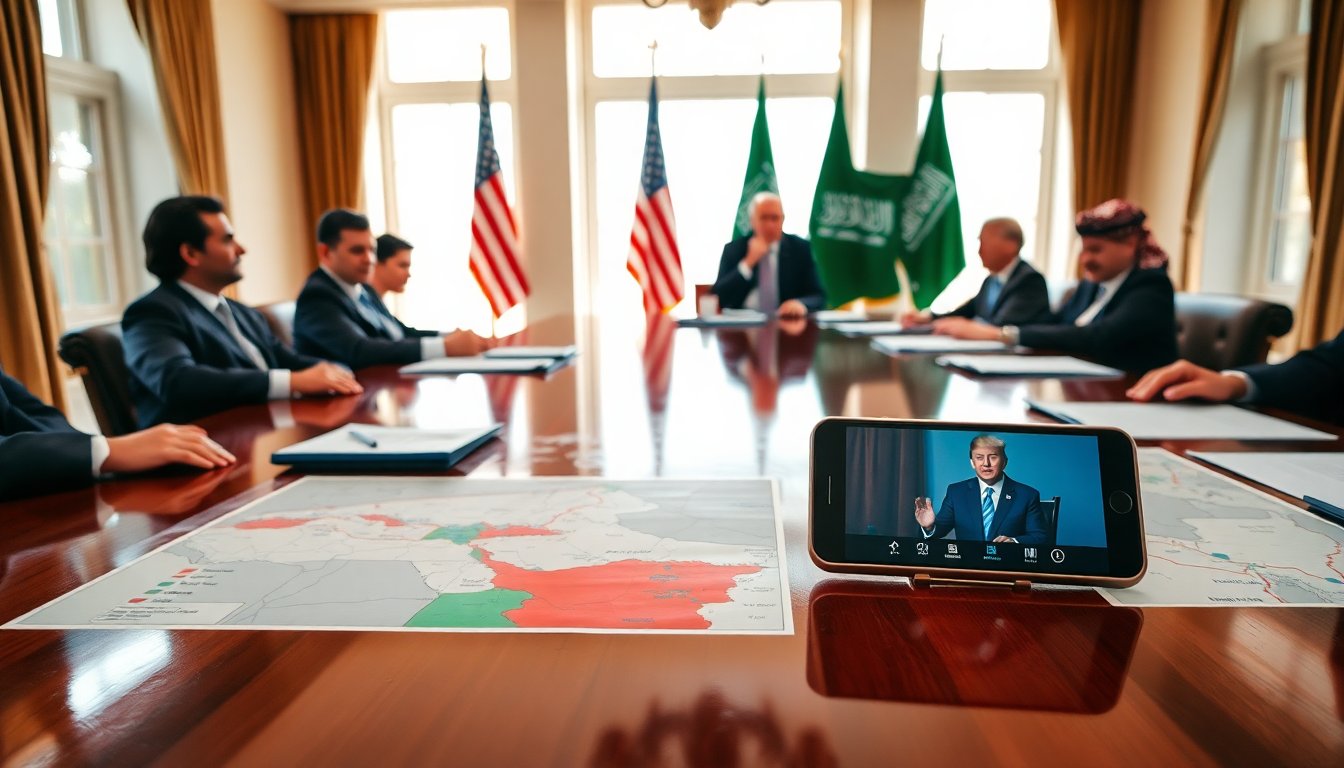Table of Contents
Trump reaffirms U.S. commitment to peace in Sudan
In an address at the Kennedy Center in Washington, President Donald Trump announced a renewed commitment by the United States to promote peace in Sudan, a nation currently beset by conflict. This initiative follows discussions with Saudi Arabia’s Crown Prince, Mohammed bin Salman, who highlighted the urgent crisis in Sudan. Trump stated that the crown prince’s insights significantly influenced his understanding of the situation.
Understanding the Sudanese conflict
The violence in Sudan is rooted in a complex history of ethnic tensions and power struggles. The primary factions involved are the Rapid Support Forces (RSF), led by General Mohammad Hamdan Dagalo, commonly referred to as Hemedti, and the Sudan Armed Forces (SAF), commanded by General Abdel Fattah al-Burhan. The conflict has intensified, resulting in a significant humanitarian crisis. According to the United Nations, over 21 million people in Sudan are facing acute food insecurity.
Trump announces U.S. involvement in Sudan conflict
The announcement of U.S. involvement in addressing the Sudanese conflict marks a significant development in international diplomacy. The Biden administration struggled to facilitate dialogue between the conflicting parties. Now, under Trump’s leadership, a new international coalition known as the Quad has formed, comprising Egypt, Saudi Arabia, and the United Arab Emirates. This coalition seeks to introduce a new approach to negotiations.
Pope’s intervention highlights humanitarian concerns
On the same day as Trump’s announcement, Pope Leo XIV addressed the persecution of Christians in Sudan and other areas. The Pope specifically mentioned Sudan as a country where religious communities face violence, calling for an end to such acts and promoting peace. His remarks align with Trump’s commitment, reflecting a shared concern for humanitarian issues in the region.
Sudan’s civil war reaches a critical juncture
The recent capture of El-Fasher by the Rapid Support Forces (RSF) signifies a pivotal moment in Sudan’s ongoing civil war. This shift effectively divides the country into two regions under separate controls. Analysts warn that this development could strengthen the RSF’s position, as they now dominate a strategic area in Darfur. Mariam Wahba, a research analyst, characterized this incident as a defining moment in the conflict, which continues to attract international scrutiny and condemnation.
The path forward: Challenges and opportunities
The increased involvement of the United States in Sudan presents a chance for improved peace prospects, yet significant challenges persist. Ongoing violence and humanitarian crises demand urgent action. U.N. Secretary-General António Guterres has called for a ceasefire, warning that the situation is deteriorating rapidly. A coordinated response from the international community is crucial in addressing these pressing issues.
Implications for U.S.-Saudi relations
Efforts to achieve peace in Sudan may also influence U.S.-Saudi relations. As both nations collaborate to stabilize the region, their partnership could see substantial strengthening. The administration under former President Trump appears dedicated to utilizing Saudi influence to advance peace talks, potentially reshaping diplomatic relationships in the Middle East.
As President Trump escalates U.S. efforts to address the conflict in Sudan, the roles of Saudi Arabia and the international community become increasingly significant. Humanitarian crises are worsening, making this a critical juncture for diplomatic initiatives aimed at achieving sustainable peace in Sudan.


